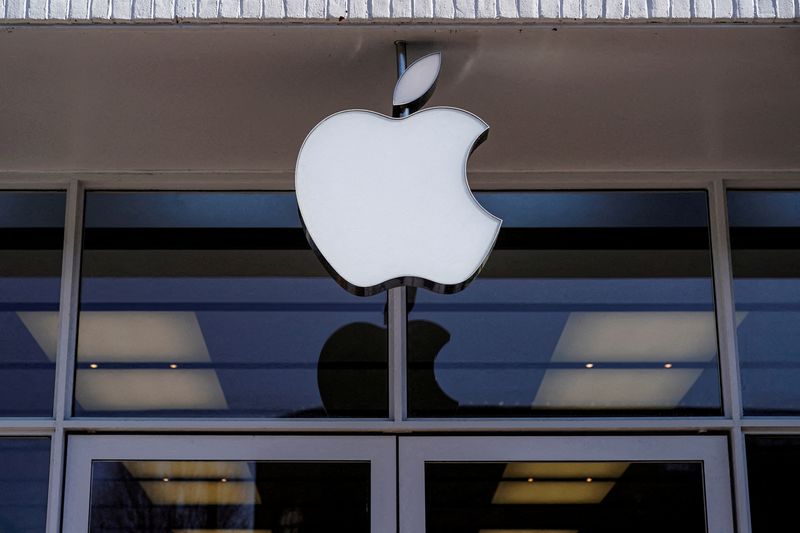Exclusive-EU likely to bolster Apple probe with new evidence, no new charges – sources
2022.07.20 19:45
3/3

FILE PHOTO: Logo of an Apple store is seen in Washington, U.S., January 27, 2022. REUTERS/Joshua Roberts
2/3
By Foo Yun Chee
BRUSSELS (Reuters) – EU antitrust regulators are set to beef up an investigation into Apple (NASDAQ:AAPL), triggered by Spotify (NYSE:SPOT), with new evidence but not new charges, in the hope of speeding up the case, people familiar with the matter said.
The European Commission last year told the iPhone maker that its App Store rules, which require developers to use its own in-app payment system and also prevent them from informing users of other purchasing options, distorts competition in the music streaming market.
Apple found itself in the European Commission’s crosshairs after Spotify had complained that the U.S. tech company unfairly restricted rivals to its own music streaming service Apple Music on iPhones.
The EU competition enforcer set out its charges in a so-called statement of objections or charge sheet.
The watchdog subsequently considered sending a supplementary statement of objections, a person familiar with the matter told Reuters earlier this year.
Such documents usually lay out new charges or changes to the original charges.
The Commission is now expected to send a letter of facts to Apple instead, other people familiar with the matter said, adding that there was no final decision yet.
A letter of fact typically contains new evidence reinforcing the original charges against companies which can then counter with a written submission.
The Commission declined to comment.
Apple, which risks a fine as much as 10% of its global turnover if found guilty of breaching EU antitrust rules, did not respond to emailed requests and phone calls for comment.
The company was hit with another EU antitrust charge in May related to its mobile payment system Apple Pay.
The alleged practices in both cases will be illegal under new EU tech rules known as the Digital Markets Act that will come into force next year with penalties as high as 10% of a company’s global turnover.








